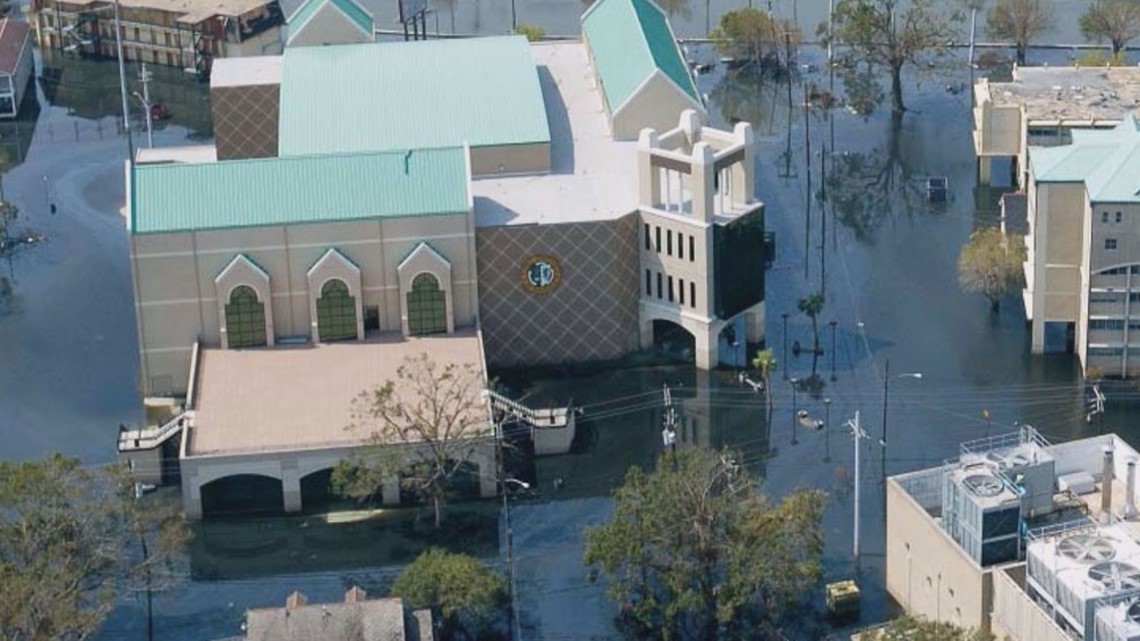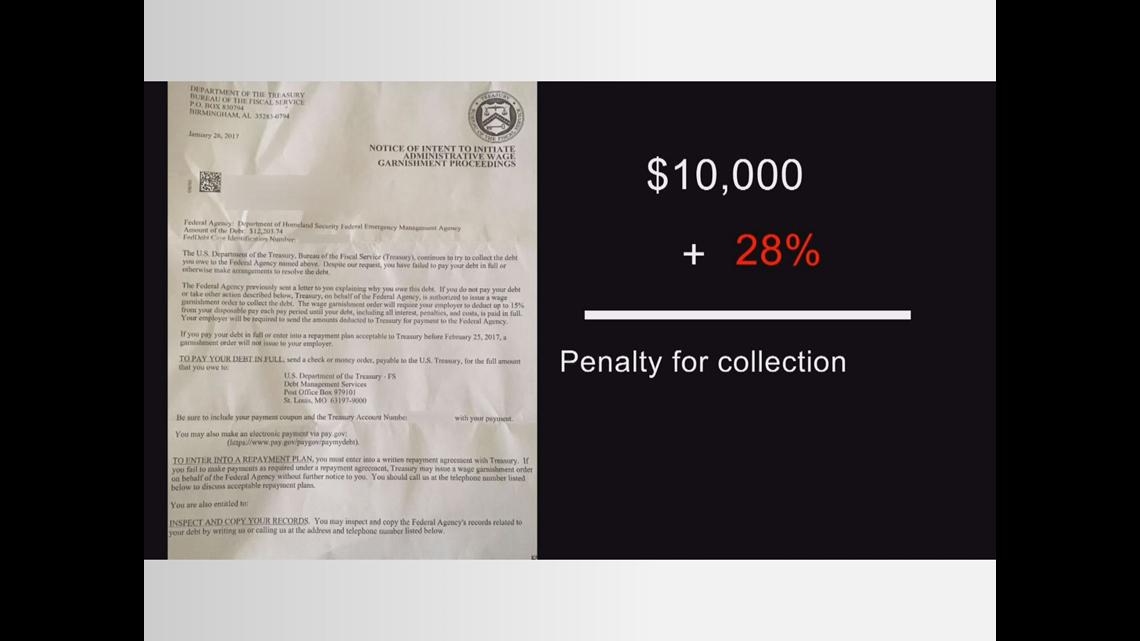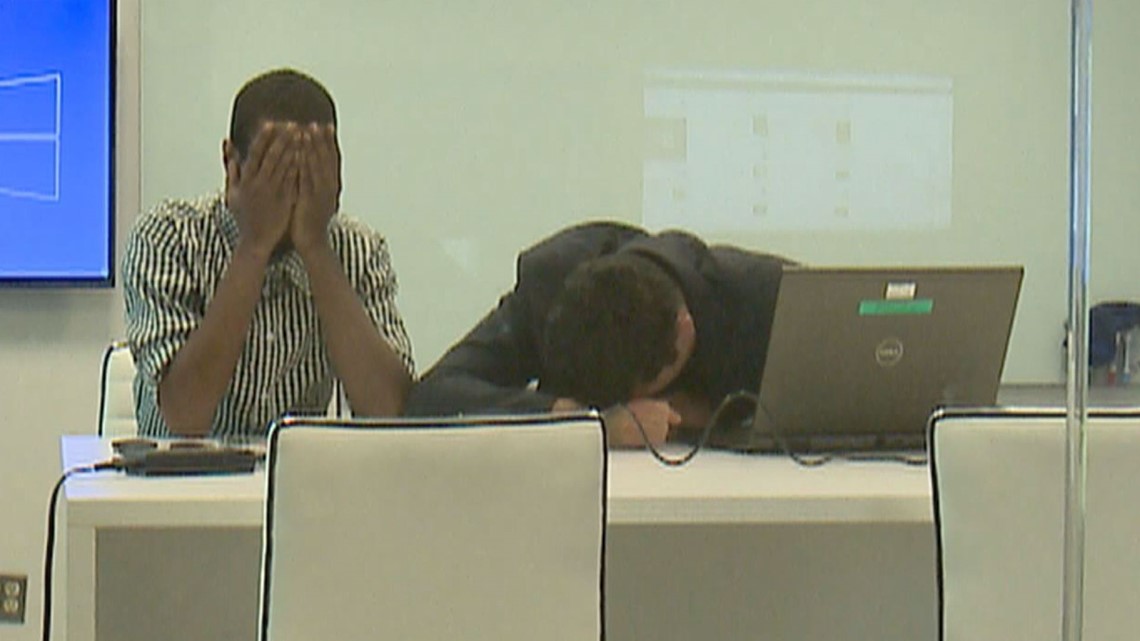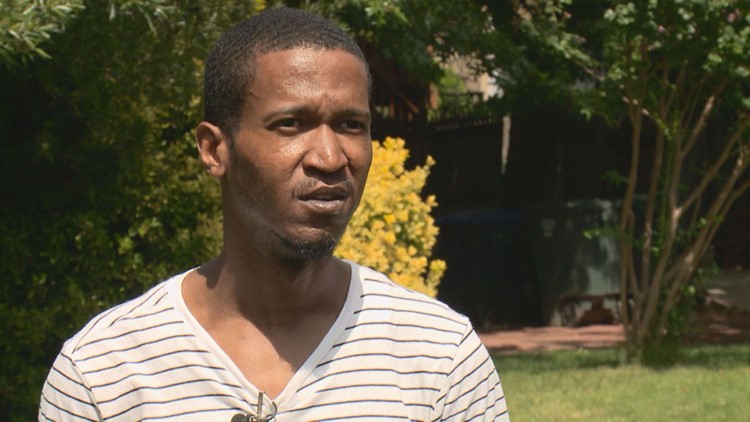So far 2017 has been one of the most devastating hurricane seasons in recent memory with damage wrecking the lives of tens of millions across the nation.
Disaster victims have turned to the Federal Emergency Management Agency (FEMA) for help. But as the WUSA9 Special Assignment Unit discovered, just because FEMA gives you disaster aid money, doesn’t always mean you get to keep it.
For Gregory Allen, Jr., FEMA is a four-letter word in more ways than one.
“It’s so painful,” Allen said. “I cried so many tears this year I called the suicide hotline.”
It started August 29, 2005, when flood waters rushed over New Orleans after Hurricane Katrina. Allen’s school, Xavier University of Louisiana, was covered in four feet of water.
The damage was so bad school leaders had to postpone the fall semester. One out of every four students left and never came back.
“I lived in anarchy,” Allen said. “There was no government. I couldn’t go to school. Like what could I do? If I would have stayed in New Orleans, I would have died.”


Allen moved to DC to be with his twin brother. He enrolled in Howard University but no longer had the scholarship money he had at Xavier.
Allen stayed on course for a degree in biology, but the memories of Hurricane Katrina haunted him.
Allen said he was diagnosed with PTSD. Meanwhile, the financial pressure of trying to start over only added to his stress.
So he turned to FEMA.
“So they asked like, what did you have?” Allen recalled. “What did you leave down there? What is missing? And like, I told them...And three weeks later they cut me a check.”
Allen said that check was for around $10,000 in disaster assistance, which he said he used to pay for on-campus housing at Howard, a new computer and new clothes.
WUSA9 asked Allen for documentation on the purchases, but he said any receipts or copies were lost or thrown away years ago.
“I think it’s all good,” Allen said. “I’m working. I’m doing better. I’m an adult, I’m having a good time. You know it’s like 12 years later at this point, and I get a letter from the Department of Treasury.”
The letter said 12 years after Hurricane Katrina, the government wanted its relief money back. The letter said Allen owed FEMA $12,203. That’s $10,000 the agency originally gave him. Plus FEMA added a 28 percent penalty assessed by the Treasury for having to collect the money.


The government told Allen it had unsuccessfully tried to locate him since 2013. And that they got no response after sending collection letters to at least two different addresses and a former employer.
Allen said he was moving around different places as he changed careers. He said he never knew FEMA was trying to collect until the letter from the Treasury showed up at his current address in February, 2017.
The letter stated the government was going to start garnishing his wages and force him to make restitution.
“FEMA decided that the funds that they gave me, I was ineligible for,” Allen said.
“I lived through Hurricane Katrina but I’m in eligible for these funds. I lost everything, but I’m ineligible for these funds. I have PTSD, but I’m ineligible for these funds. I don’t even understand how they just arbitrarily chose this.”
Allen called both FEMA and the Treasury and couldn’t get anyone to explain why he was ineligible for the relief money. So, the WUSA9 Special Assignment Unit decided to help him get some answers.
Investigative Reporter Eric Flack started with the only phone number Allen had. The one on the letter from the Department of the Treasury.
They told Allen they had no idea why FEMA wanted the money back and sent him to the FEMA Recoupment Hotline. It’s special hotline line set up specifically for people who have questions about why FEMA is taking back aid money.
Allen called the hotline during a busy hurricane season. Hurricane Harvey had just hit. Irma was on the way. So he understood why he was being put on hold. But as time dragged on, Allen’s patience wore thin.
“I mean the waiting game continues,” he said.
Two hours and 9 minutes after Allen called, the elevator music stopped. And the line went dead. Allen never even got the chance to speak with a person.
“It’s really disconcerting,” Allen said. “It’s disheartening.”


The WUSA9 Special Assignment Unit spent weeks emailing and calling FEMA on Allen’s behalf.
Finally, FEMA said if Allen sat by the phone on a Friday night, they would call. So he waited. Two and a half hours passed before the phone finally rang.
The big explanation from FEMA? They weren’t supposed to have given disaster aid to college students through the avenue Allen took. It was not necessarily that he didn’t deserve relief funds. He just applied for them the wrong way. And FEMA didn’t catch the mistake.
That was little consolation to Allen who believes FEMA should bear the responsibility for the error.
“Because, they’re the ones that gave out the money,” he explained.
FEMA wouldn’t agree to an interview. Instead it issued a statement:
FEMA reviews disaster assistance payments to ensure those payments have been properly awarded and appropriately spent. Whether through human or accounting errors, duplication of benefits, fraud, or other reasons, assistance sometimes goes to individuals who are not eligible.
Things got worse for Allen.
Since FEMA already transferred the debt to collections, he couldn't appeal the decision anymore. His paychecks have begun to be garnished.
“And for this to be the outcome, it’s a slap in the face,” Allen said. “It’s a slap in the face of being a citizen and trying to better yourself.”
Allen now worries hurricane victims in Texas and Florida will one day find themselves in the same boat. A lifeline offered. Then reeled back years later.
FEMA didn’t respond to questions about how often this happens.
But federal oversight offices said after Katrina, the figure was between $600 million and $1.4 billion in improper and potentially fraudulent payments. In a 2011 report to Congress, FEMA said it had drastically reduced that problem through new checks and balances.
RELATED: How to help Harvey evacuees



